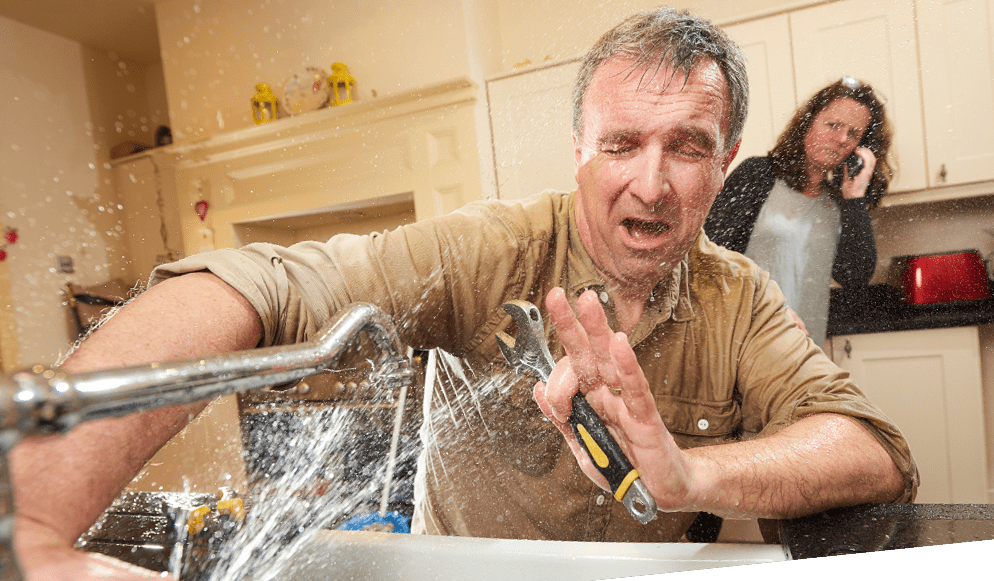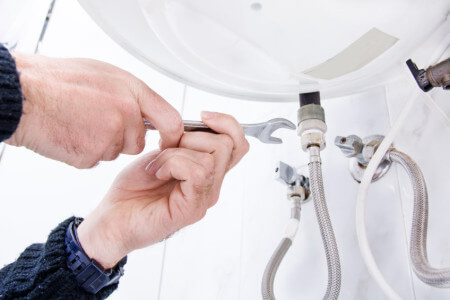Are you currently trying to find know-how involving Expert Tips for Managing a Plumbing Emergency Until Help Arrives?

Pipes emergencies can strike at any time, creating stress and anxiety and possible damage to your home. Whether it's a burst pipe, a clogged up drain, or a leaky faucet, recognizing just how to handle the situation until a specialist plumbing professional arrives can conserve you from additional complications. This post provides crucial emergency pipes tips to assist you mitigate damage and reclaim control during a pipes crisis.
Shut off the Water Supply
The primary step in any kind of plumbing emergency situation is to shut off the water system. For localized concerns, such as a leaking tap or commode, turn off the shutoff near the component. When it comes to a major leakage or ruptured pipe, find your home's main water shut-off valve and transform it off immediately. Knowing the place of these shutoffs beforehand can save beneficial time during an emergency.
Shut down Your Water Heater
In specific emergency situations, such as a ruptured pipe, it's a good idea to shut down your hot water heater. This avoids getting too hot or damages to the device when water stops streaming. Shut off the power supply to the hot water heater (electric or gas) and let it cool off to stay clear of possible hazards.
Temporarily Stop a Ruptured Pipeline
A ruptured pipe can lead to significant water damage in minutes. To alleviate the concern:
Call a professional plumbing right away to attend to the issue completely.
Have an Emergency Situation Pipes Set
Prepare a fundamental plumbing emergency set to deal with minor problems efficiently. Your kit ought to include:
Having these devices available can make a considerable difference in your ability to manage emergency situations.
Unclog Drains Pipes Securely.
A blocked drainpipe can be an irritating and unpleasant concern. Right here's exactly how to tackle it:.
If these methods do not work, avoid making use of extreme force, as it might intensify the clog.
Handle Overflowing Toilets.
An overflowing commode can trigger immediate turmoil. Here's what you need to do:.
Address Tiny Leaks with Temporary Fixes.
Tiny leaks can rapidly come to be significant issues if left unchecked. Utilize these short-lived fixes up until specialist help shows up:.
While these repairs aren't irreversible, they can help reduce water loss and damage.
Deal With Frozen Water Lines Meticulously.
In cooler climates, frozen pipes are a common emergency. If you think a frozen pipeline:.
Know When to Call a Specialist.
While quick fixes can aid momentarily, particular pipes concerns call for prompt specialist focus. Call a plumber if:.
Quickly contacting a specialist makes certain the concern is solved correctly and prevents more issues.
Avoid Further Damage.
Taking quick action to reduce damage can save you time and money in the long run. Here's how:.
Final thought.
Plumbing emergencies can be frustrating, however with the best knowledge and tools, you can take care of the circumstance efficiently till assistance arrives. By shutting off the water supply, resolving little leakages, and utilizing momentary fixes, you can decrease damage and maintain your home safe. Remember, these pointers are short-term remedies; always get in touch with an accredited plumber to manage the root cause of the issue. Prep work and quick reasoning are your best allies in any type of pipes emergency.
8 Helpful Tips for Managing Plumbing Emergencies at Home
If your plumbing system hasn’t failed once, wait for it because almost everyone has a story to tell. Sometimes, it could be simple emergencies such as a leaking pipe, a blocked cistern, or even a big burst pipe. In situations like this, you need to have some handy tips to save you some money and from possible damages.
Take care of minor issues early.
Sometimes, you could have avoided an emergency by taking proactive measures while it was still early. Some major plumbing emergencies can be a result of an ignored minor issue. We recommend that you have items like plumbing tapes and other related items. A plumbing tape can allow you to manage minor leaks before the plumber arrives.
Cut off the water supply.
This tip is essential in almost any type of leakage problem. For problems like minor leakages in the toilet or kitchen, turn off the supply that takes water to the affected pipes. If the leakage is a major pipe, you must shut off the supply valve to the entire building. This will help you avoid flooding your home and neighbors if you share a flat.
Know your plumbing system
Folks typically move into a new apartment without understanding the water supply around the building. This can prove disastrous if a water emergency arises and the plumber is far away. The previous tip will prove useless if you don’t practice this one. More importantly, know where your water shut-off valve is located – you’ll need that knowledge to prevent potential home floods.
Have some common handy tools
There are lots of plumbing emergencies that you can handle without hiring a plumber. That’s why you must keep some tools available always. Some tools that you can use to fix simple plumbing emergencies easily include plumbing tapes, screwdrivers, thread seal tapes, plungers, pliers, tape measures, and rubber gloves.
Insulate your pipes from cold
You’ll save yourself from many plumbing expenses if you protect your water pipes from the cold. This is because of the harmful effects that cold weather can have on your pipes. During winter, your pipes can burst from being overly expected to freezing temperatures. So, make sure insulators are there to keep the pipes working correctly.
Avoid practices that will clog your toilet.
Many people indulge in practices that can damage the plumbing system of the entire building. One of these is when they use their toilet to dispose-off garbage. They flush all kinds of things, such as paper towels, bandages, hairs, female sanitary products, etc., down the toilet. This will block your toilet in the long run, incurring unnecessary expenditures. Dump such waste in the trash instead.
Check your dials regularly.
Sometimes, there could be leakages in your home without noticing them in time. So, constantly monitor your water meter dial. If the dial is reading when there is nobody using water, this is an indicator that there is leaking. Check for leaks immediately. Call a plumber as soon as possible if you can’t find any.
https://www.constructionplacements.com/8-helpful-tips-for-managing-plumbing-emergencies-at-home/

I stumbled upon that blog entry on What to Do During a Plumbing Emergency when doing a search on the search engines. Sharing is nice. Helping others is fun. Thanks a lot for your time. Revisit us soon.
Click For More Info